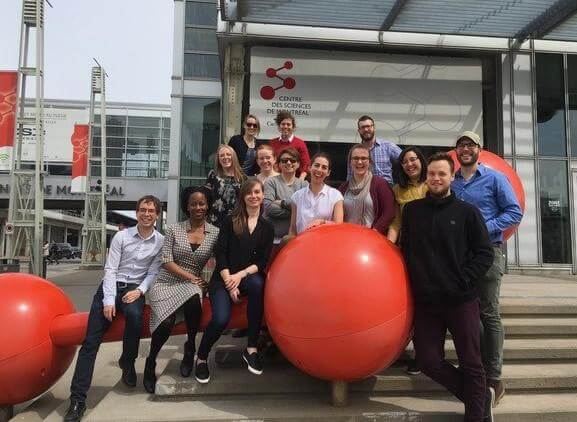Doing STS at the science/policy intersection
Eric Kennedy, Consortium for Science, Policy, and Outcomes - Arizona State University;Matthew Harsh, Concordia University
Boston 2017: Pedagogy

Over the last two years, we have been engaged in an STS-inspired training program that traverses the interfaces between technoscience, society, and policy in Canada. Science Outside the Lab North (SOtL North) is an intensive, 7-day immersion course where graduate students from across Canada and disciplines explore the governance of Canadian technoscience through interacting directly with professionals who fund, regulate, shape, critique, publicize, and communicate science and technology in Ottawa, Ontario and Montreal, Quebec. Some students complete the program in person while others complete it online throughout the summer term. Building on the success of a similar program that has been run for over a decade in Washington, DC, we have used the creation of the Canadian program as an opportunity to consciously reflect on how STS theories and concepts shape the program's learning outcomes and pedagogy, and how conducting the program has changed our understanding of STS concepts. In this making and doing exhibition, we present evaluation data that examines how participants come to discover and voice their own critiques of concepts such as technological determinism, the deficit model of science communication, and the linear model of science and societal outcomes. We explore this through an analysis of how the questions students ask to our guest speakers changes and evolves throughout the program, and compare this for face-to-face and online modes of delivery.
Published: 01/30/2023
